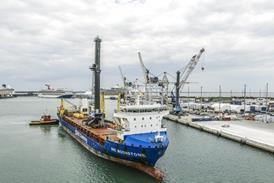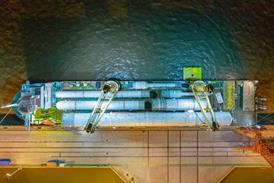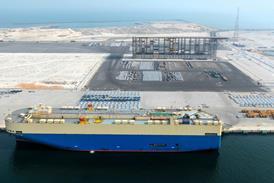Research carried out by the European association of abnormal road transport and mobile cranes (ESTA) has exposed deep concerns in the heavy transport and lifting sectors about engine malfunctions thought to be caused by AdBlue additives.
HLPFI reported in June on ESTA’s concerns around the fuel additive AdBlue. The association has been urging members to send in information about problems with the use of AdBlue in mobile cranes and SPMTs after concerns were raised at a meeting in the summer between association members and representatives of the crane manufacturers through FEM, the European Materials Handling Federation.
ESTA said that crane rental companies have been informally reporting problems for many months with some calculating that one third of all on-road breakdowns were AdBlue-related. As a result, ESTA decided to try to identify the precise scale and nature of the problem.
At the time of writing, 55 companies had responded to ESTA from 10 different countries, the largest number numbers coming from the UK, the Netherlands and France. They reported problems with mobile and crawler cranes, trucks and SPMTs. The commonest incident was a public road breakdown with almost half of the respondents saying that safety had been compromised as a result. A small number reported dangerous interruptions to wind turbines and port load-out work.
Many of those companies said they had experienced multiple incidents in the past two years with three suffering more than 20 in that time.
AdBlue is a mixture of water and urea used in diesel engines to minimise the production of nitrogen oxide (NOx) emissions. It reacts with NOx in the catalytic converter, breaking it down into nitrogen and water vapour in a process known as selective catalytic reduction (SCR).
A key concern is that if the AdBlue system malfunctions – perhaps because the engine is too cold – then the crane’s engine can lose power and will eventually shut down, with potentially dangerous consequences.
ESTA director Ton Klijn said: “We will continue gathering information and will be consulting with the members of the joint ESTA and FEM European Regulations Workgroup that first raised the issue, and then decide on the next steps.
“What is already clear, however, is that this is a serious issue with considerable safety implications - and it needs to be addressed as a matter of urgency.”
One solution might be for the engine manufacturers to develop a form of “override” that would allow the engine to keep operating for a limited period despite the AdBlue system malfunction. However, engine manufacturers are reportedly reluctant to invest in diesel engine redesign at a time when their commercial emphasis is on developing electric powertrains.
















